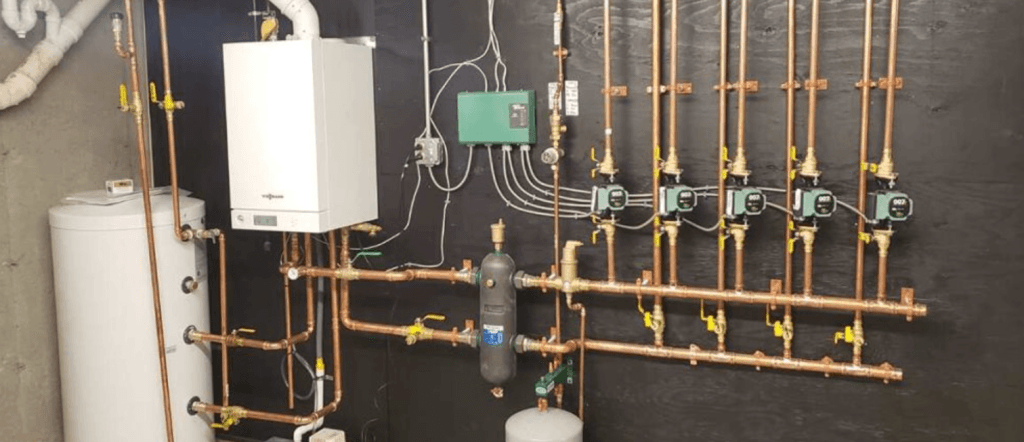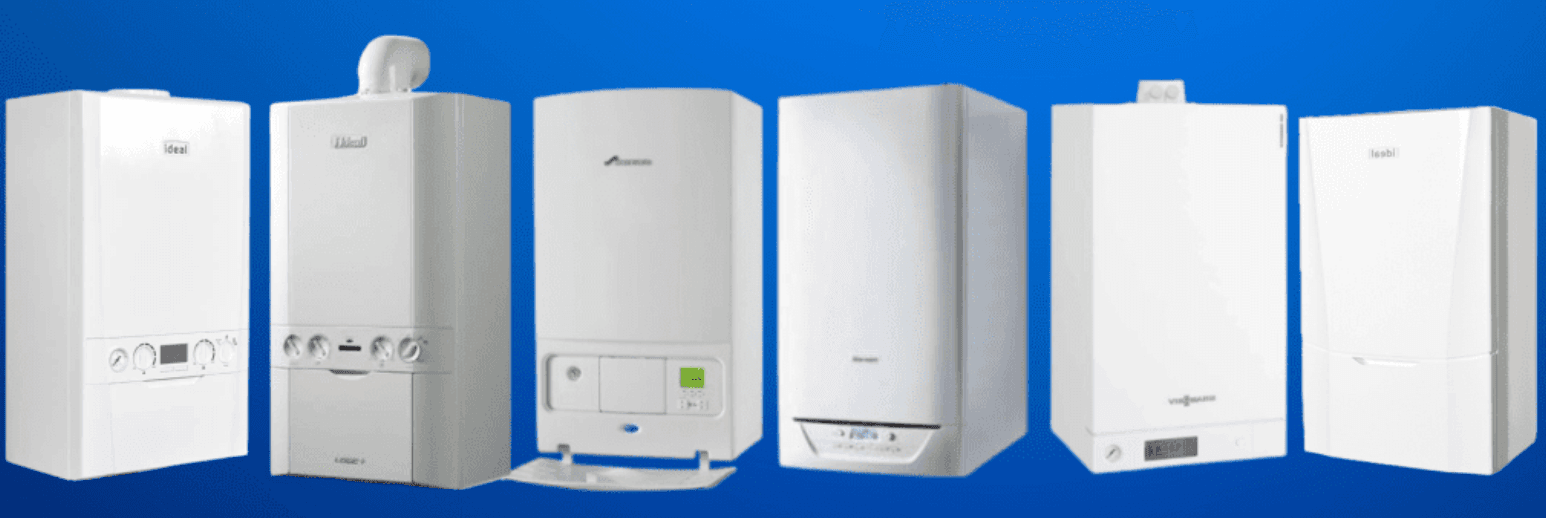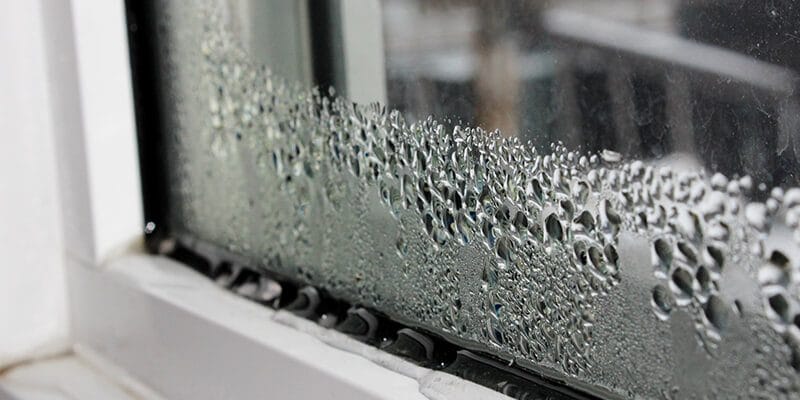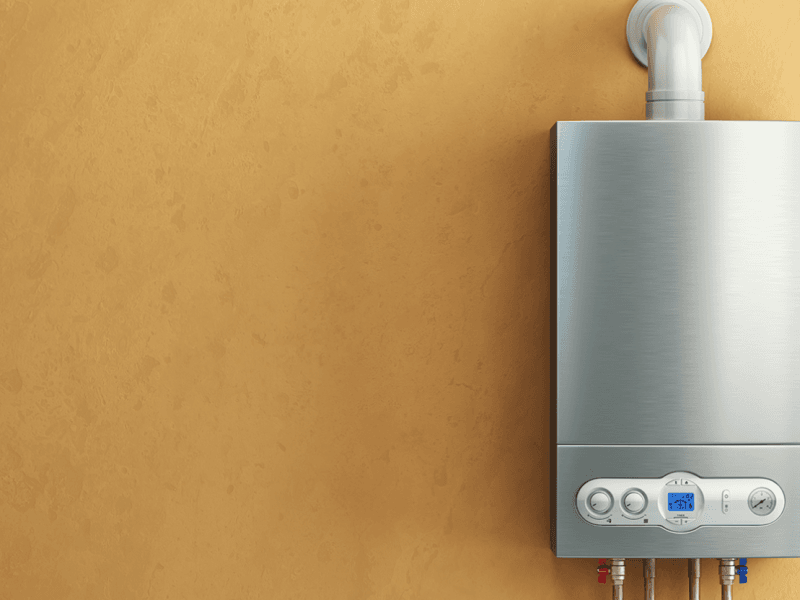Propane heating boilers (heating with propane) are becoming increasingly popular among homeowners in both rural and urban areas. These units provide an efficient solution for space heating and domestic hot water, especially in areas without access to natural gas lines. Whether you’re heating a home, cabin, or outbuilding, a propane boiler can be an effective and energy-efficient option.
Why Choose a Propane Boiler?
Propane boilers are valued for their:
- High efficiency (often exceeding 90% AFUE)
- Cost-effectiveness
- Easy control and operation
- Compact design (especially wall-mounted models)
Modern propane boilers are available in a wide range of models that differ by price, size, output capacity, and installation type. The best boiler is the one that meets your specific heating and hot water needs without being oversized or inefficient.
A house with propane heat uses a propane-fueled furnace or boiler to heat the home. Propane is stored in a tank, and the furnace or boiler burns the propane to heat water or air, which is then circulated throughout the house via ducts or a hydronic system, respectively. Propane heating offers advantages like high efficiency, clean burning, and the ability to provide heat even during power outages.
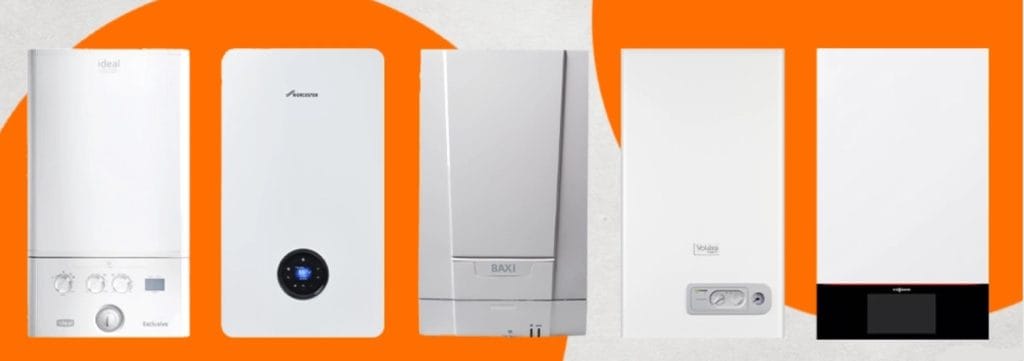
Key Considerations Before Buying
1. Define the Boiler’s Function
First, determine whether you need the boiler solely for space heating or also for domestic hot water. Combination boilers (combi units) offer both functions in one appliance, making them ideal for smaller homes.
2. Choose the Right Type: Wall-Mounted vs Floor-Standing
-
Wall-Mounted Boilers
These are compact, efficient, and ideal for homes under 2,000 ft². They typically have built-in modulating burners that adjust heat output as needed. You can install them in a utility room, kitchen, hallway, or even a bathroom. Note: they require power and proper venting, as they emit combustion gases. -
Floor-Standing Boilers
These offer higher heat output (up to 300,000 BTU/hr or more) and are more suitable for large homes. They are more robust, don’t always rely on electricity, and often require a chimney or dedicated vent. They’re commonly used in areas with colder climates and larger square footage.
3. Material Considerations
Boilers are generally made from either:
- Steel – Lighter and more affordable, with a typical lifespan of 10–30 years.
- Cast Iron – Heavier and more expensive, but extremely durable (lifespan of 50+ years) and corrosion-resistant.
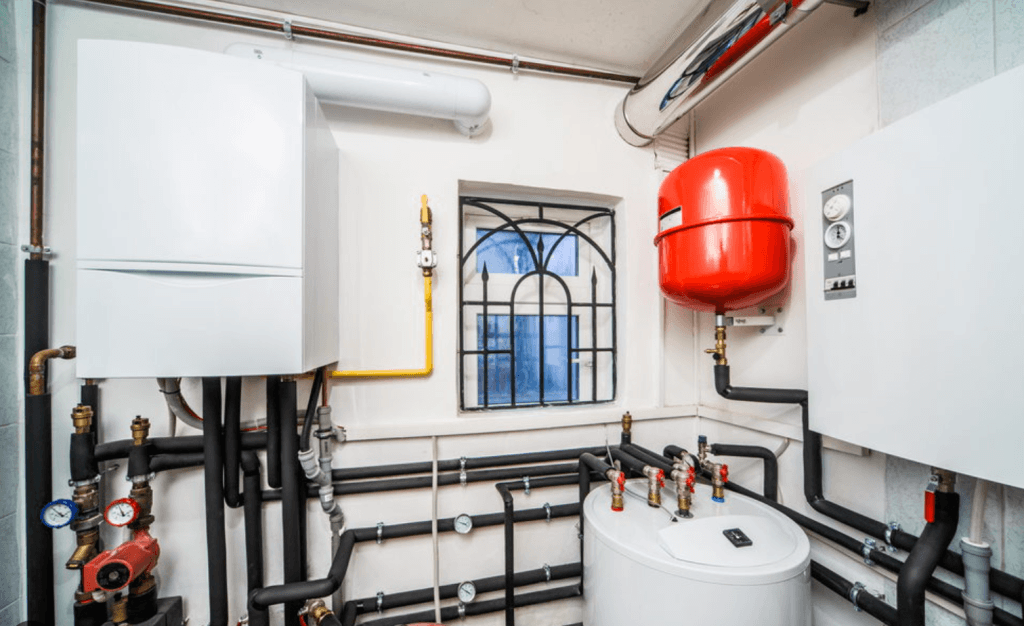
Choosing the “best” boiler depends heavily on individual needs and preferences, but some brands and models consistently rank high in terms of reliability, efficiency, and features. Overall, Worcester Bosch, Viessmann, Vaillant, Ideal, and Baxi are often considered top-tier boiler brands.
Using Propane Boilers with LP Gas Tanks
Most propane boilers can be configured to run on liquefied petroleum (LP) gas from storage tanks. However, you’ll need a conversion kit with the correct orifice nozzles and adjustments to the gas valve and control board. A certified HVAC technician should always perform this conversion to ensure safety and compliance.
Important Usage Tips:
-
Cold Climate Operation
In freezing temperatures, avoid drawing more than 34,000 BTU/hr (≈10 kW) from a single 20-gallon (approx. 50-liter) tank to prevent regulator or tank freezing.
For example, a boiler rated at 81,000 BTU/hr (≈24 kW) should be supplied by at least three propane tanks working in parallel. -
Fuel Consumption Estimate
In cold weather (e.g., below -5°F / -20°C), a 20-gallon propane tank may last only 1–2 days when heating a 1,600 ft² home. Always keep a backup supply or consider a larger bulk tank installation. -
Safety Requirements
- Do not install propane tanks in basements—propane is heavier than air and may accumulate, posing an explosion risk.
- Check for leaks at least every six months using leak detection equipment or soapy water.
- Install UL-listed propane leak detectors in enclosed spaces.
- Follow NFPA 58 (Liquefied Petroleum Gas Code) and local building codes.
- Regulators must handle pressure variations—do not exceed 0.72 psi (50 mbar) at the appliance inlet.
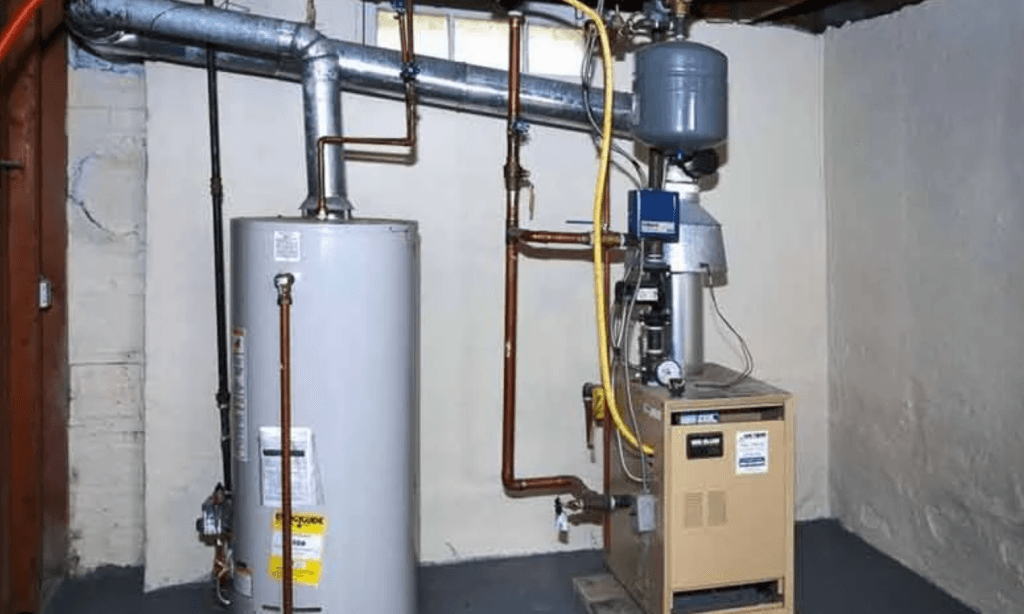
Sizing Your Propane Boiler
To determine the right size boiler:
- Estimate heat load using Manual J calculations or a quick rule of thumb:
1 BTU/hr per ft² for well-insulated homes (older or poorly insulated homes may require more). - Example: A 2,500 ft² home generally needs a boiler with around 60,000–80,000 BTU/hr capacity, depending on insulation and climate.
If using a combi boiler with instantaneous domestic hot water, sizing is often based on hot water demand, not just space heating.
A combi boiler rated at 81,000 BTU/hr (24 kW) can typically serve one shower or bath at a time. If you need more than that, or plan to heat a larger home, consider a system boiler with a separate indirect water heater (tank).
Final Tips
- Always consult with a licensed HVAC contractor or engineer to assess your home’s heat loss and determine the best boiler type and size.
- Choose ENERGY STAR®-rated models when possible.
- Ensure proper installation with compliance to local codes, OSHA guidelines, and NFPA regulations.
- Regular maintenance, including annual inspections and cleaning, will extend the life of your propane boiler and ensure it runs at peak efficiency.
- Explore essential tips for buying a house with a propane tank.
Buying a house with propane heating requires considering several factors beyond the standard home inspection. You need to understand propane usage, tank ownership, maintenance history, and potential costs. Knowing these details helps ensure a smooth transition and avoids potential issues down the line.
